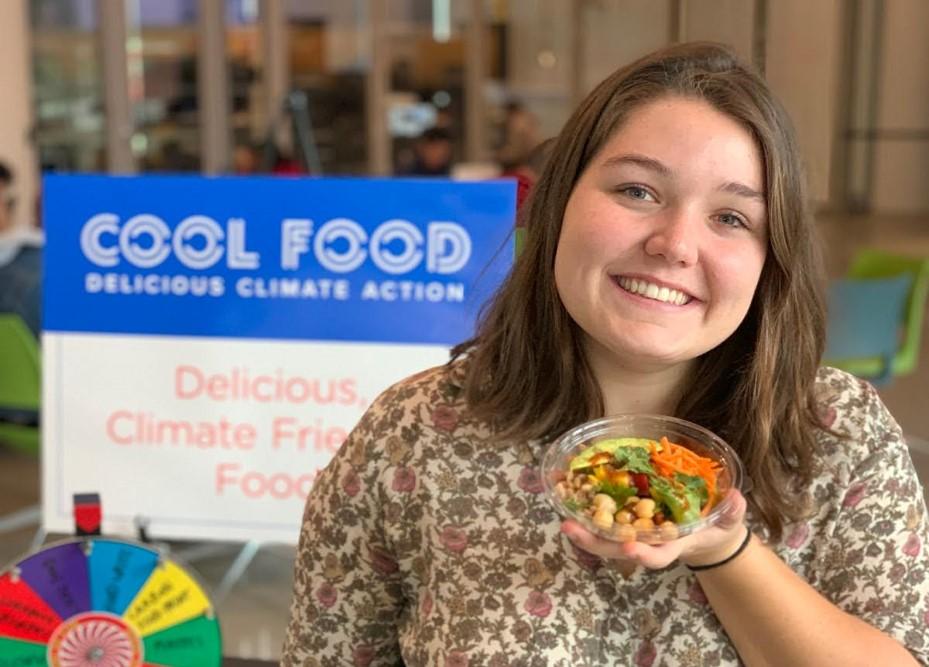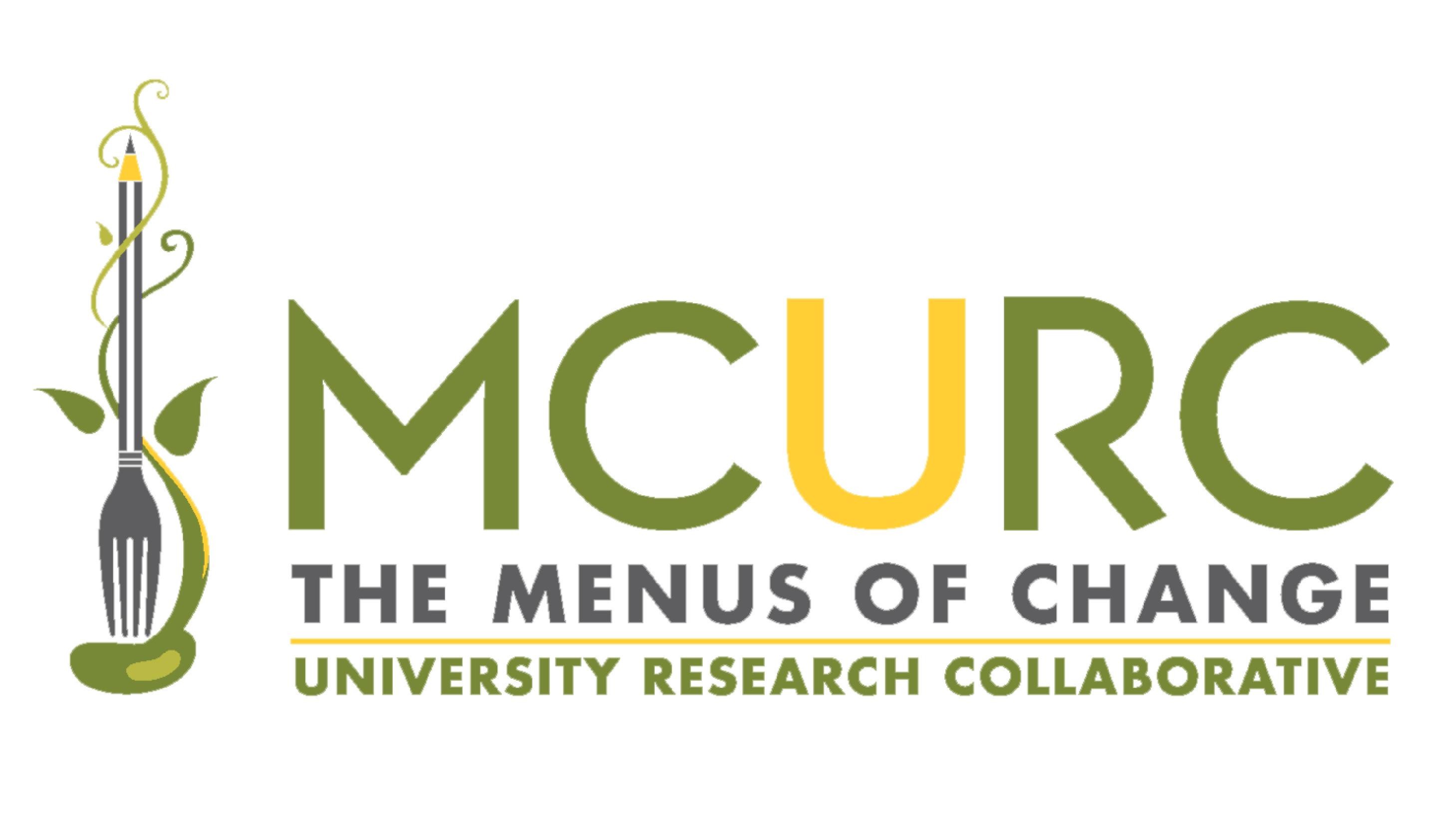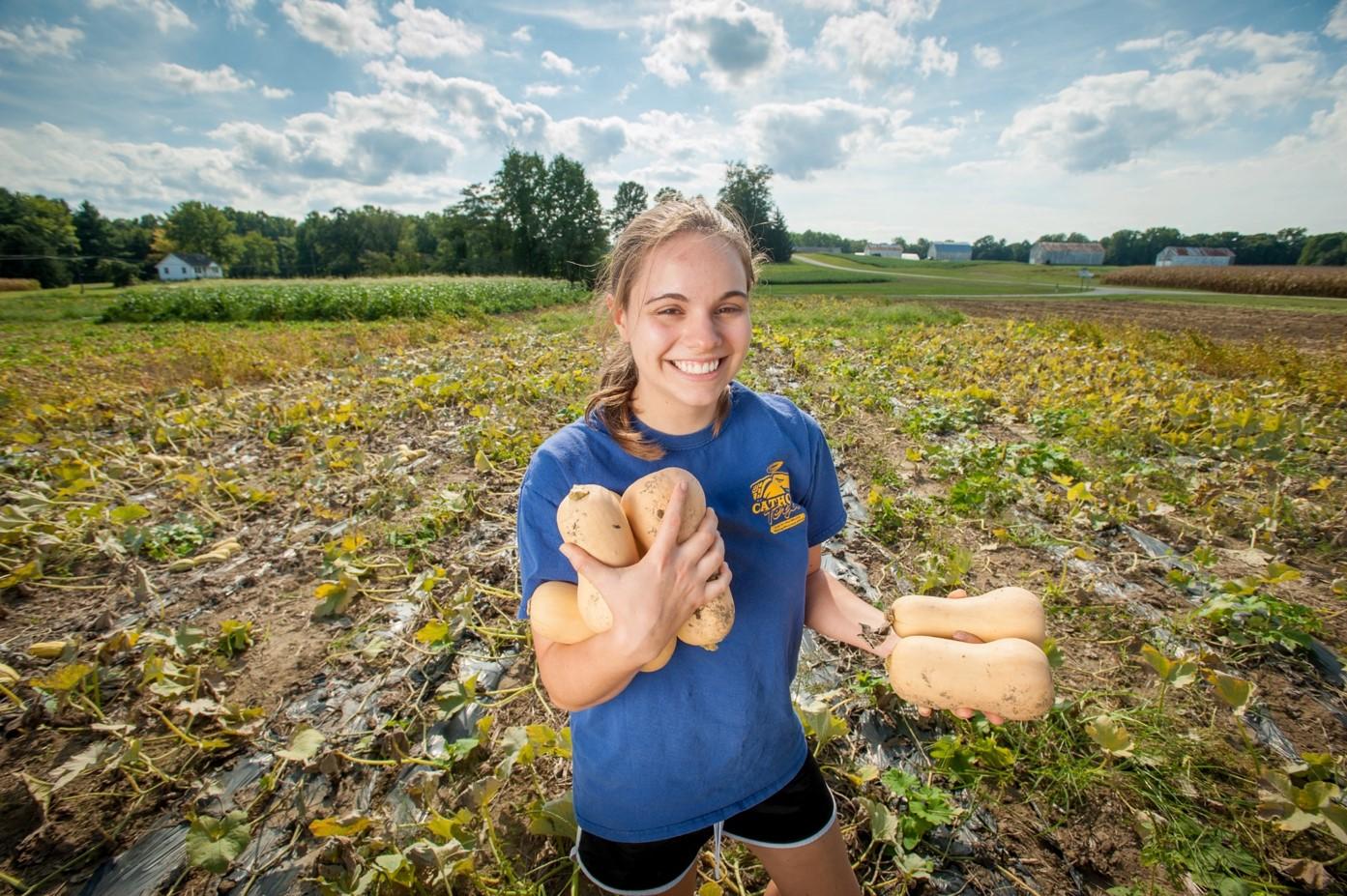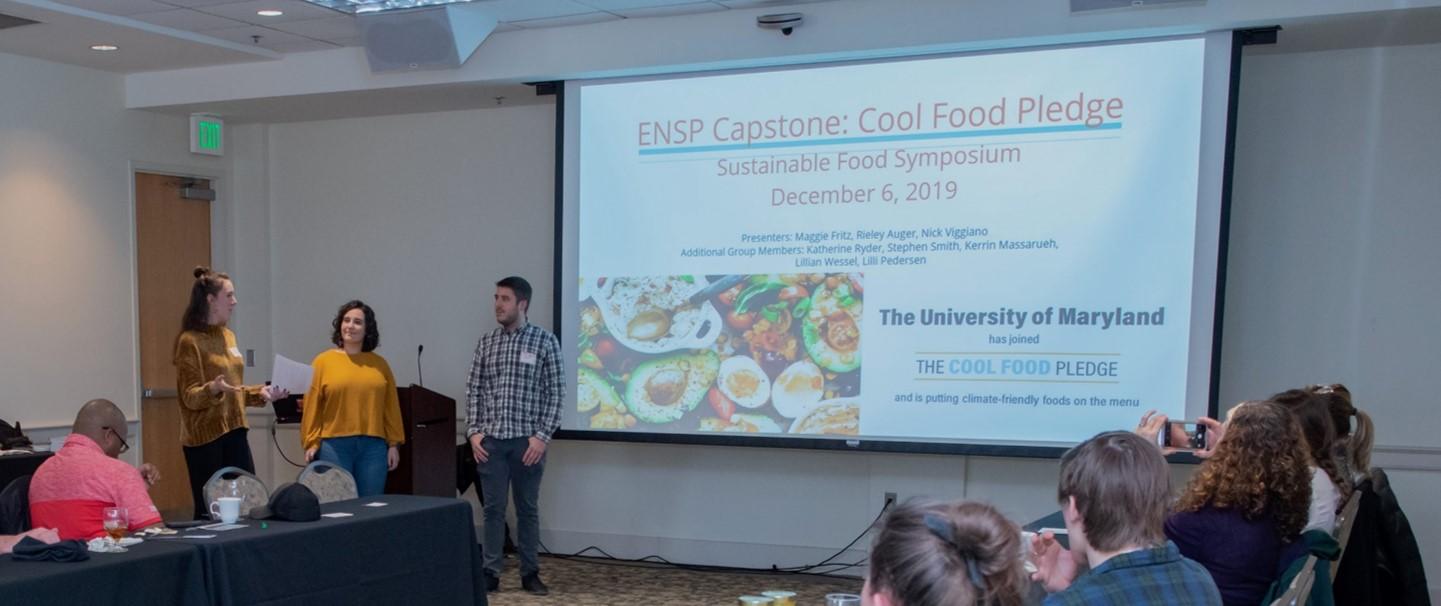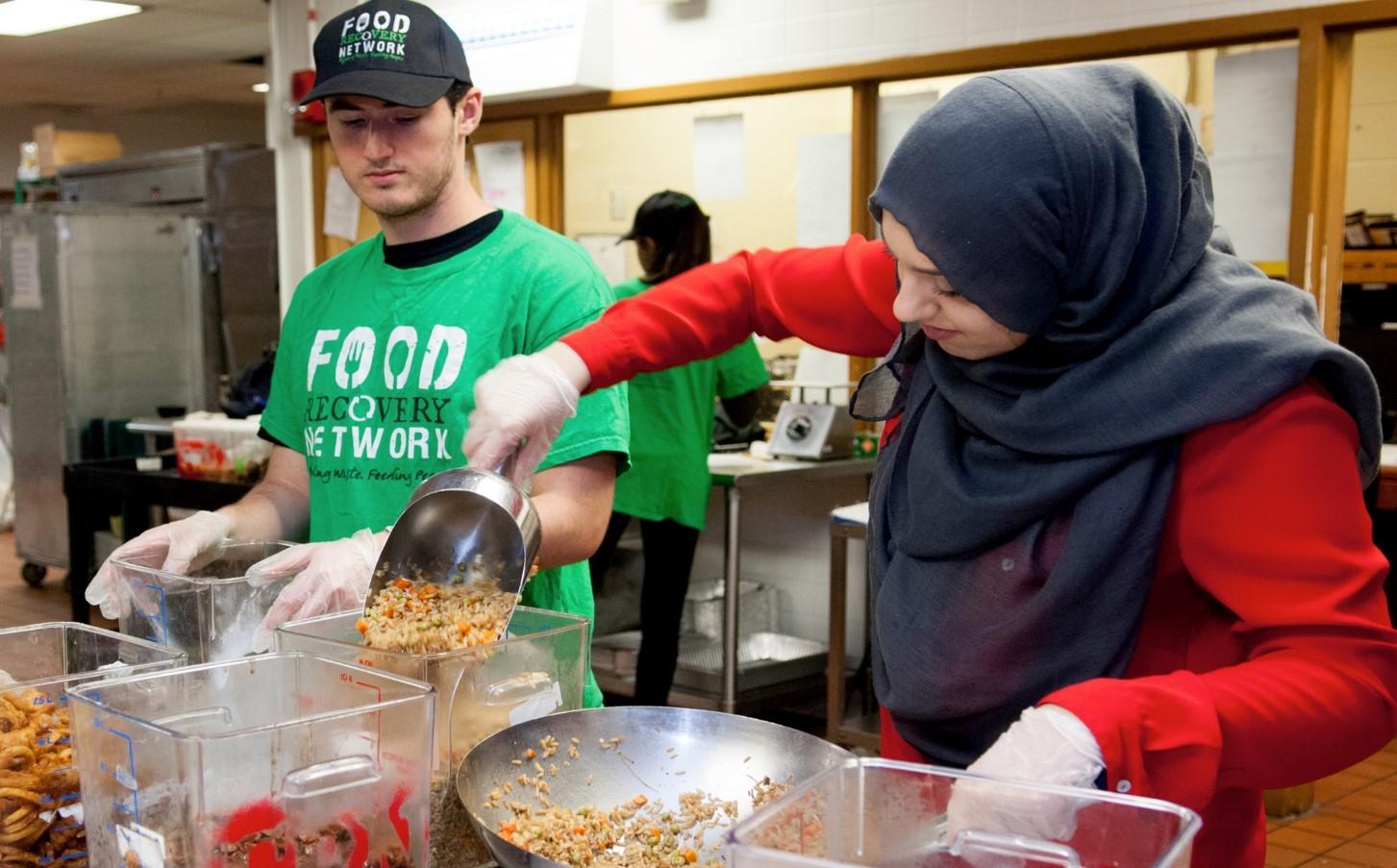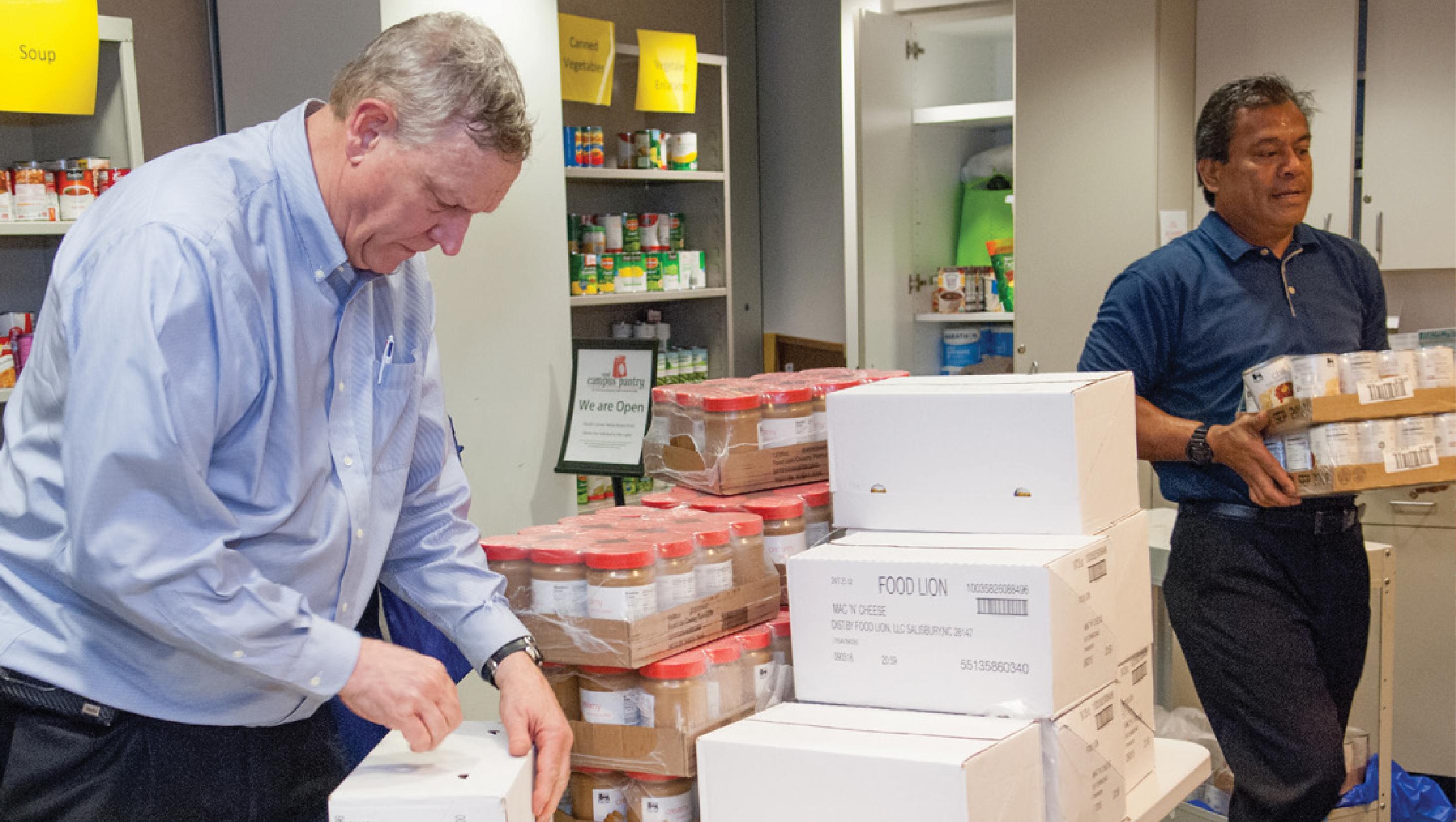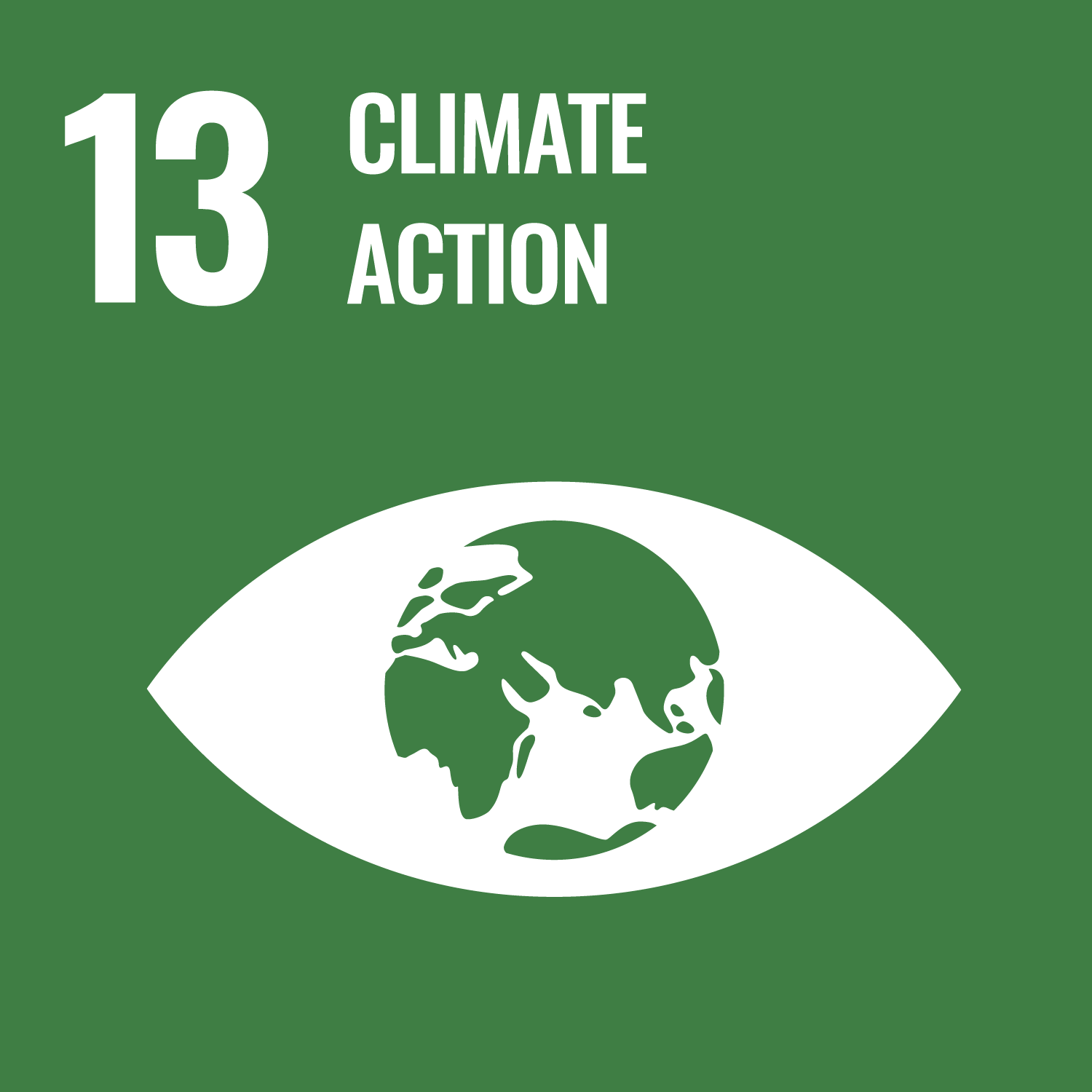As part of the Division of Student Affairs and a campus leader in environmental stewardship, University of Maryland Dining Services has been instrumental in helping the University reach its climate goals and become a model “green university.” In support of campus sustainability goals, Dining Services developed and adopted the Sustainable Food Action Plan in October 2012, committing to continuously provide more nutritious and environmentally, socially, and economically sustainable food to campus diners.
Local and Global Impact
Sustainability in the Food System
Dining Services Partners to Alleviate Hunger, Avoid Waste, and Address Climate Pollution

